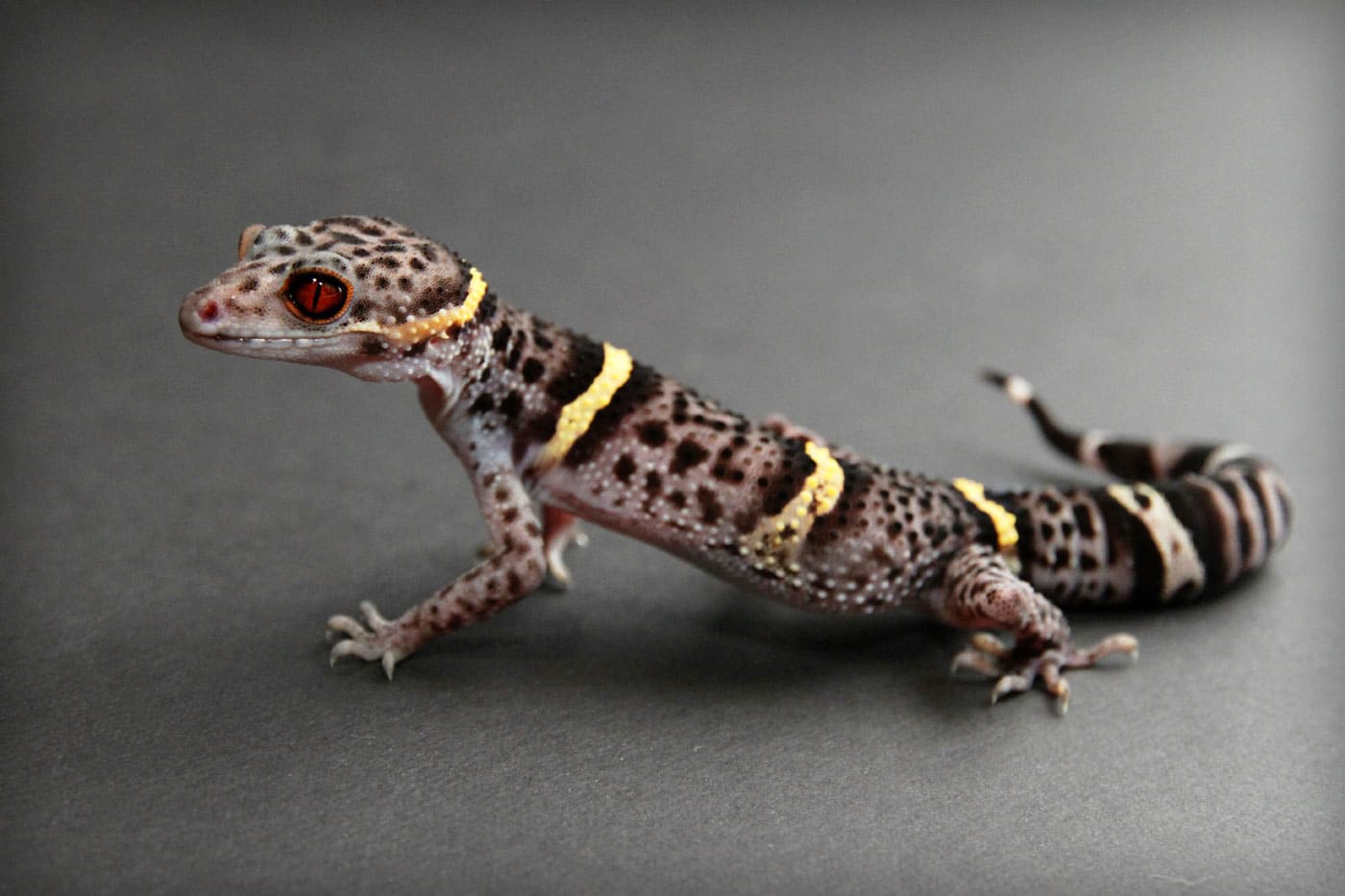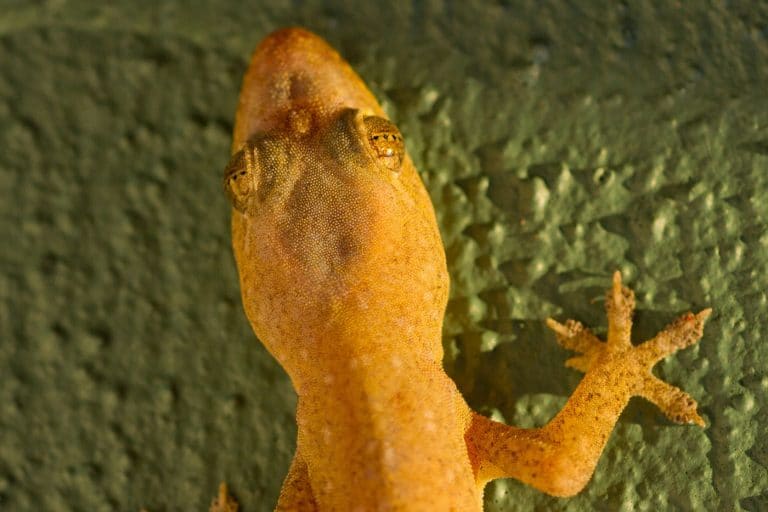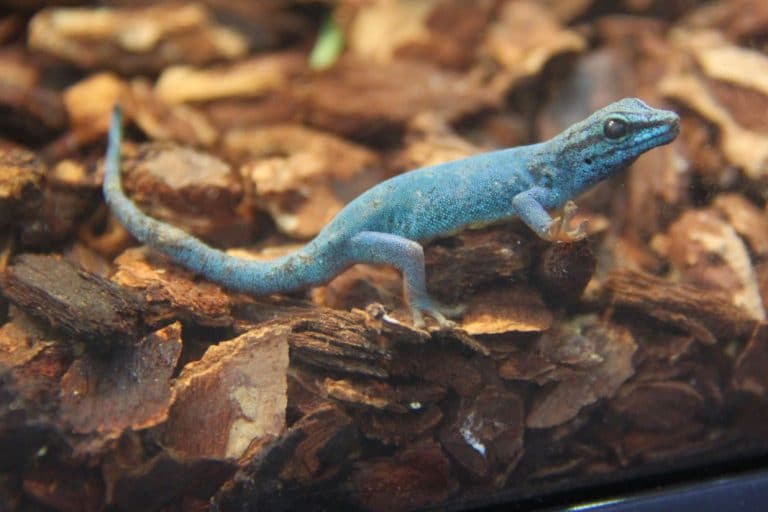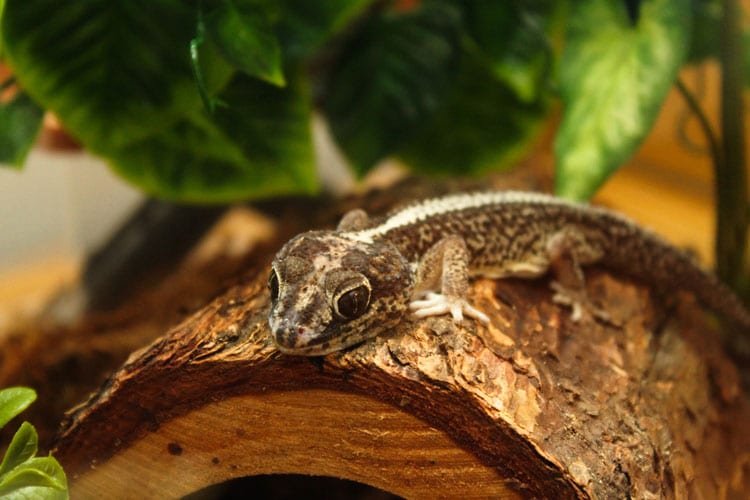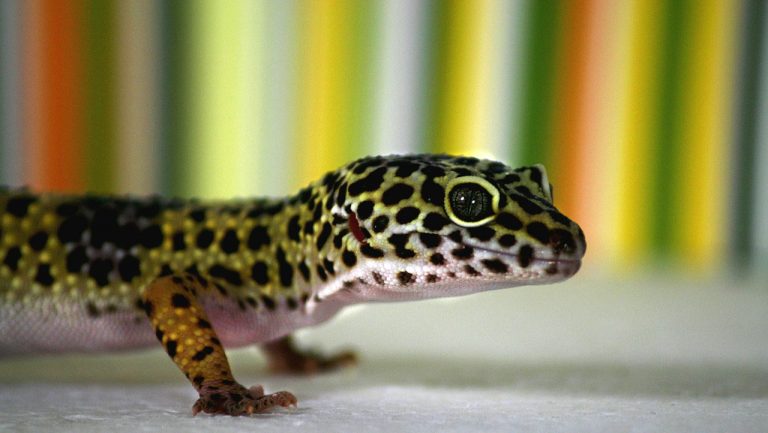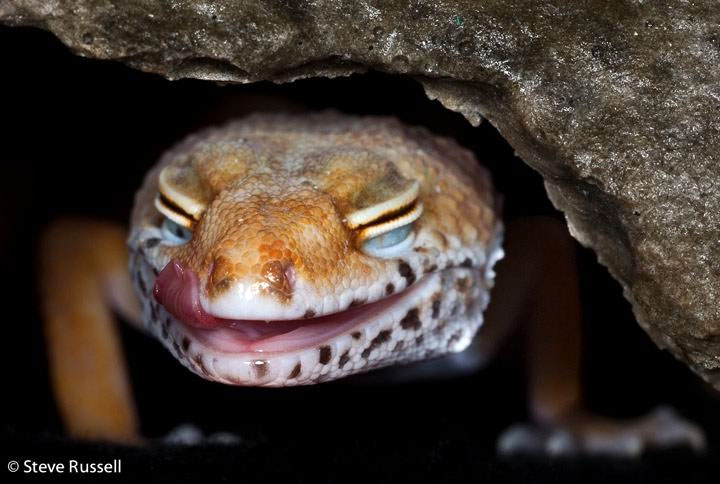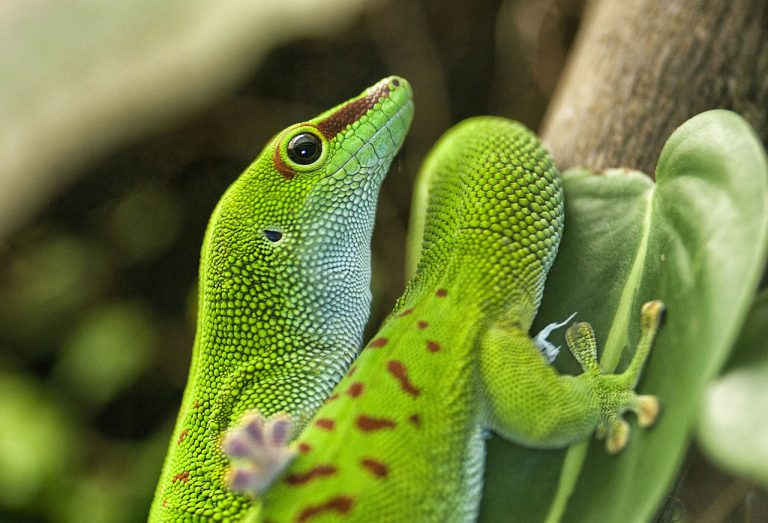Chinese Cave Gecko
Comparatively Low Temperature is Imperative for Their Survival
The Chinese Cave Geckos or the Chinese Leopard geckos, (scientific name Goniurosaurus Luii) grow up to approximately 10 inches with an average length of 7 to 9 inches. Their eyes are sparkling orange with vertical pupils. They have body colors varying from different shades of brown ranging from light lavender to purple.
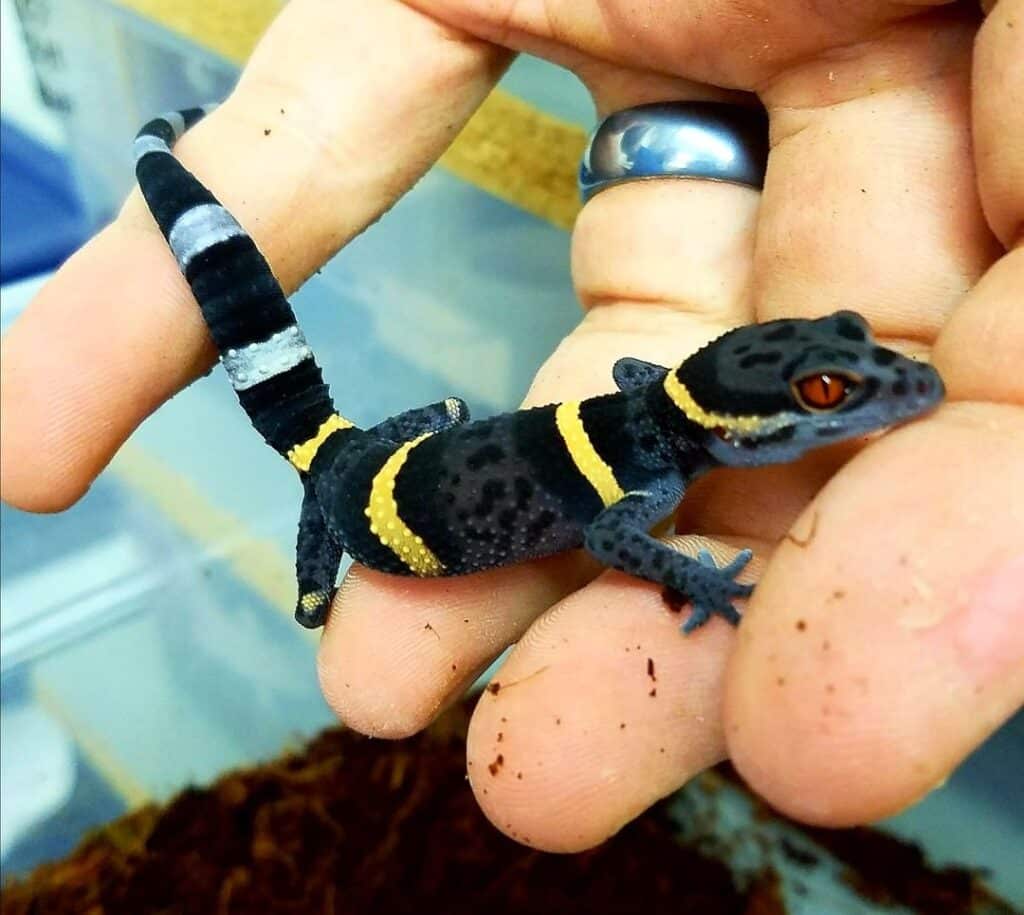
Natural Habitat
The Chinese Cave gecko is from the Tropics of Asia. They are nocturnal and settle in caves.
As a Pet
Housing
Maintaining a comparatively low temperature is imperative for their survival. During the day, it can weather temperatures of up to 80° F. Above this temperature, the gecko develops stress, ceases eating and starts losing weight.
Substrate
The most convenient and fine substrate for these Chinese Cave geckos is cypress mulch. It facilitates the geckos to burrow in and sustains the humidity. Place a tiny heap of moss in a corner of the box, at times above the hide box. Even spot cleaning becomes easy.
Food
Feed the Chinese Cave Geckos twice or thrice a week with mature crickets. Once a fortnight gives them wax worms or mealworms in a vessel of calcium supplement. At a time, never a place variety of food items in the cage. The geckos develop stress simply if many crickets ramble in the cage. At every feeding, supplement them with sufficient calcium.
Breeding
Meeting certain criterion makes breeding these Chinese Cave geckos an effortless affair. Winter cooling time is very important when you should reduce feeding to once or twice a week and gradually reduces the temperature to 70s or 60s. Later, after a month when the geckos become healthy, bring in the male inside every female’s cage for two to three weeks. After remaining with all the females at least once, give it a break of two weeks. Within two weeks, you start to observe two tiny pinkish circles in the female’s abdomen. These are the first formation of the eggs. In 4-6 weeks, you search the enclosure for the eggs. Every female lays up to six clutches in a season.
Substrate
Paper towels, Eco bedding and sphagnum moss are best for them. To enable them to soak and drink all the time, keep a big bowl of water in the cage.
Heating & Lighting
UV is hazardous to the lizard and it is likely even to kill it; hence avoid UV, which is superfluous. As a suggested option, use a 20-watt infrared light and 10 watt black light.
Temperature and Humidity
At the day, maintain the temperature from 70-80 degrees F and at nighttime, between 65-75° F. Maintain the humidity at 70-90%.
Heating equipments can cause them to become dehydrated and could kill them easily.
Caging
Provide your geckos a tank with a secure cover and of capacity 15-20 gallons is fine. Keep a wooden cave log or a big box as hiding places that is at least half the size of the cage inside the tank. Place also a wet sphagnum moss within the hide box.
Maintenance
Mist and clean the cage every day.
Handling
These Chinese Cave geckos have red eyes and are purple and black in color. Even those who have long experience in raising these geckos, find it difficult. Captive breeding is very rare, and despite this, if you have successfully bred yours with abundant care and patience, you should feel proud. These geckos are delicate and timid; hence, you would do well not to handle them very often.

Having discovered a fondness for insects while pursuing her degree in Biology, Randi Jones was quite bugged to know that people usually dismissed these little creatures as “creepy-crawlies”.

